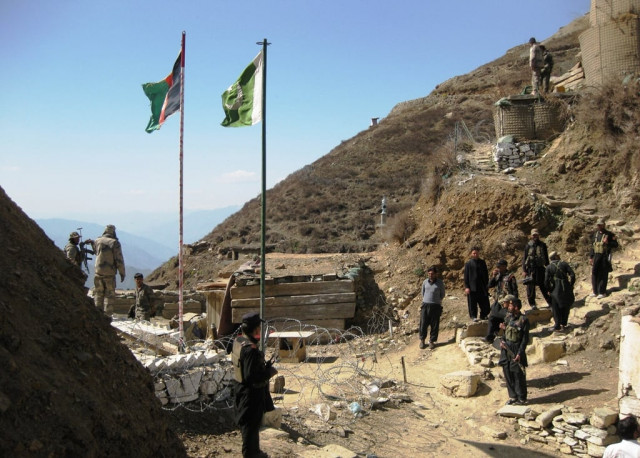Attack on border post
The fact is that such incursions of our sovereignty have become routine.
Like all cliches, the one about the trigger-happy Yank who likes to go it alone persists to this day because it contains a kernel of truth. That was reinforced by the November 26 cross-border raid by Nato forces that killed at least 24 Pakistani soldiers manning a checkpost in Mohmand Agency. Without implying that the attack was a deliberate one, the shoot-first, ask-questions-later policy that is standard practice for troops in Afghanistan makes such tragedies inevitable. In retaliation, Pakistan has blocked all Nato supplies from crossing the border, a policy it cannot sustain indefinitely but one that is certainly justified for this unprovoked attack. What makes this incident so galling is that it has so far played out as a rerun of a similar episode from September of last year. On that occasion, Nato forces actually encroached on Pakistani territory and killed two security officials in Kurram Agency. The response then, too, was a suspension of Nato supplies but after an apology from the US ambassador and a promise from then Isaf commander David Petraeus that greater care would be taken, the supply lines were reopened. Expect the same scenario to play out again. The fact is that such incursions of our sovereignty have become routine and we have become so dependent on the US that we just have to grin and bear it. The US, too, has been looking elsewhere for supply routes. It has recently begun using a route that begins in Russia and traverses through Kazakhstan and Uzbekistan before reaching the landlocked Afghanistan.
Meanwhile, this latest incident is a bloody reminder of how the two countries are poles apart when it comes to Afghanistan. The reason the US carries out such risky raids in Pakistan is because we have refused to take action against the Haqqani network, claiming it is not in our interest to do so. The US, however, has a muddled policy, prompted by its desire to withdraw from Afghanistan, whereby they want to both, kill as many Taliban militants as possible while at the same time holding peace talks with them. Rather than continue the charade of claiming they have common ground, it may be best for the two countries to acknowledge that, when it comes to Afghanistan, their interests do not match.
Published in The Express Tribune, November 27th, 2011.
















COMMENTS
Comments are moderated and generally will be posted if they are on-topic and not abusive.
For more information, please see our Comments FAQ